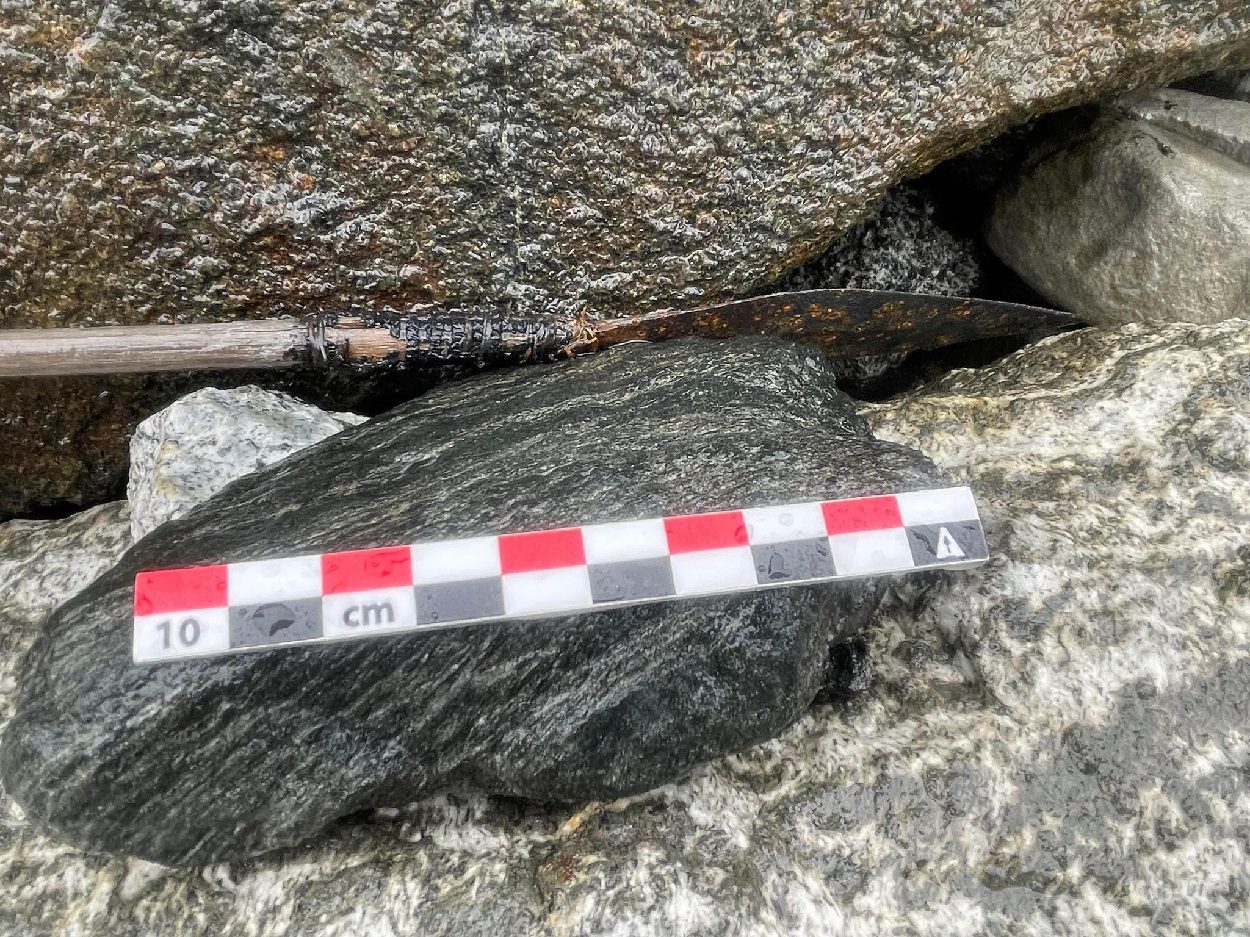Archaeologists from the Glacier Archaeology Program have found an arrow in the melting ice during a research project in the Norwegian mountains.
The project is focusing on a melted ice patch in the Jotunheimen mountain range, where the team has found a preserved arrow with an intact iron arrowhead, shortly after arriving at their base camp 1750 metres above sea level.
The arrow dates from around 1,500 years ago during the Norwegian Iron Age, discovered in a collection of broken rock fragments between larger stones on the lower edge of the icefield.
The team believes that the arrow was lost and deposited downslope by meltwater, and has since been exposed several times over the centuries with the melting ice.

This is indicated by the lack of fletching, the fin-shaped aerodynamic stabilisation normally made from feathers or bark. Evidence of sinew and tar has also been identified, but this survives in a poor state of preservation.
The arrow is tapered towards the end and the nock has been thickened for engaging with a bowstring. The remains of the tar would have glued the fletching to the shaft, while imprints of the thread securing the fletching is still visible.

The team found another arrow earlier this year in the Jotunheimen mountains which dates from around 1,700 years ago. This arrow was found complete with its iron arrowhead, sinew wrappings and aerodynamic feather fletching.
Other discoveries in melting ice patches by the project includes: the best preserved example of skis from prehistory, a Bronze Age shoe, and a lost Viking settlement that contained sleds, dead animals, clothing and household items.
You can follow the progress and updates from the project on their Facebook page.
Header Image Credit : Glacier Archaeology Program





